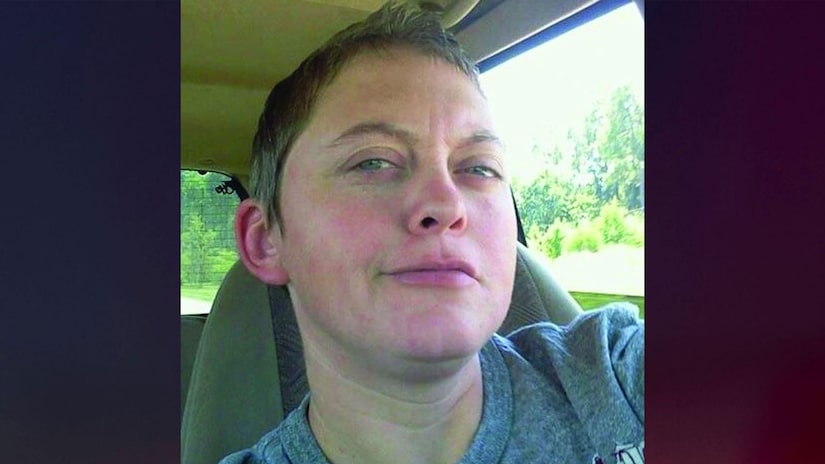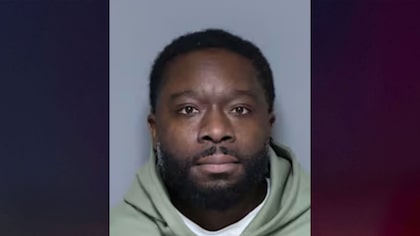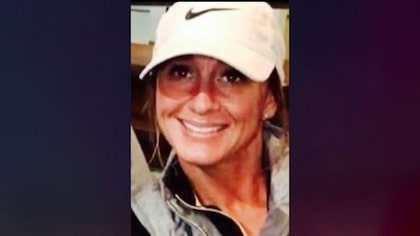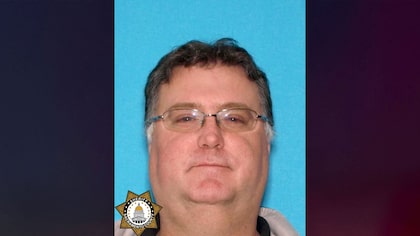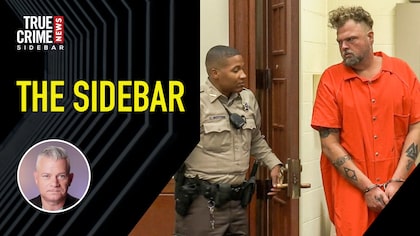Crime Watch Daily investigates the murder conviction of rising rapper Mac Phipps
12/07/2016 1:10 pm PST
A rap superstar in the making is sent to prison for a crime he says he didn't do. And when you hear the all the facts of the case, you may wonder too why he can't get anyone to listen.
McKinley "Mac" Phipps grew up in the lively city of New Orleans. And some say he seemed to have greatness in his blood. It seemed the sky was the limit for this young artist -- until one day a man Mac didn't even know was murdered.
Mac Phipps was on a fast track to fame, a rapper on the rise, performing with Snoop Dogg and Master P. But one night in February 2000, one man is killed in a Louisiana club, and Mac Phipps is arrested for the crime.
Today his family sits down with Crime Watch Daily, hoping to prove authorities convicted the wrong guy, claiming there is no physical evidence against Mac, making allegations of bribing witnesses, and dropping a bombshell claim that another man has openly confessed to the killing.
Rapper Mac Phipps is a phenomenon, in the game since age 11, when he broke into the big time with his own music video. By the time he was 12 he had recorded his first album. He was constantly traveling and did a big tour with superstar rapper Snoop Dogg, going all over the world.
Mac is the oldest of six children to parents married for 40 years. And his family has his back all the way.
"We were trying to start a management company, and what I would do is book small shows in different little small clubs around Louisiana," said Sheila Phipps, Mac's mother.
Mac was hosting an open-mic at a place called Club Mercedes near Baton Rouge in Feb. 2000. He's looking for new talent to represent. But he is a little hesitant about this gig because the crowd was a little rowdy, according to Sheila. Close to a hundred people pack the room as Mac's parents watch the door and take tickets. In another part of the club, Chad Phipps stays close to his brother Mac when trouble begins.
"There were people in there who were dancing, getting a little bit too rowdy, which I could automatically see that it was going to be a problem," said Chad Phipps. "I knew it was going to escalate."
The room erupts into a battle zone with fists flying, when suddenly two distinct sounds throw the crowd into a frenzied panic: a bottle breaking followed by a gunshot.
Chad says he and Mac hustled out the back door, but he says then Mac ran back inside, deeply worried for the safety of his parents. Chad followed him.
"You could hear some guy yelling toward the front of the bar and kicking over tables," said Chad. "My brother reached and grabbed his gun and pointed it in the air. No shots were ever fired."
His mother says Mac carries the gun for his own security on the road, a small registered firearm for protection.
"According to him, he held it above his head so that way whoever was shooting could see 'Hey, I got a gun too,' and he was running around the club holding this gun, saying, 'Who's shooting, who's shooting?'" said crime writer David Lohr, who has spent years studying the case.
"There was also multiple witnesses that saw him with a handgun directly after the shooting, so when police arrived on the scene, they had several individuals say 'Hey, well we saw Mac Phipps with a gun in his hand,'" said Lohr.
Mac's father is gathering the family when he says he spots a young man lying on the floor with a woman helping him.
"I asked her 'Is he all right?' And she said 'Yeah, he's all right. He just got shot in the arm,'" said McKinley Phipps Sr., Mac's father.
They leave the club and head for home in Baton Rouge. But that night there's a knock on the door. It's the police, and they're looking for Mac.
"You had policemen with shotguns and pistols, they asked me 'Are you Mac?' I said 'No, I'm his father,'" said Phipps Sr. "They said 'Mac is wanted for a murder.'"
And they are also looking for every gun in the house, including the one Mac was carrying at the club.
As an ex-military man, Mac Phipps Senior collects guns, and he turns all of them over to police.
"They got everything. None of those guns were ever fired," said Phipps Sr.
Police arrest Mac and charge him with the murder of 19-year-old Barron Victor Jr., the young man Mac's father says he saw lying on the floor who later died at the hospital.
"That bullet didn't just penetrate his arm but went through his chest and did fatal damage," said Phipps Sr.
At Mac's trial a year later, several witnesses testify that he fired that shot that killed Barron Victor Jr., even though police find that the actual murder weapon is not among the guns taken from Mac's house, and in fact has never been recovered. According to Mac there is no physical evidence tying him to the shooting.
"They did gunshot residue tests on his hand, they came back negative," said David Lohr. "No gunshot residue or anything was found on his clothing. We know that Mac's gun was not the gun that was used to shoot Barron Cictor. So I mean they had no evidence whatsoever. All they had was these statements from some individuals alleging that Mac was the shooter."
Authorities deny having conducted those tests. A jury is seated for the trial in the St. Tammany Parish Courthouse in Louisiana, the same week as the September 11, 2001 terrorist attacks in New York and Washington, D.C.
"This is a parish that David Duke lives in, where he was once an elected official," said Lohr. "There wasn't a single African American on his jury, and his trial was held during September 11th, where the prosecutor was continuously referring to him as an 'assassin.'"
The family says the prosecution also painted Mac as an outlaw rapper, with his "Camouflage Assassin" stage name.
"That is simply a nickname he had," said brother Chad Phipps. "It was just hip-hop, he was the 'Camouflage Assassin.' He was the 'lyrical' assassin, not a person who kills people. It's lyrical. It's music."
At least two witnesses claim Mac is the shooter. In the end, Mac Phipps is convicted of manslaughter and sentenced to 30 years. He is still serving time today at the Elayn Hunt Correctional Center in Louisiana.
After 16 long years, Mac Phipps is still behind bars for the murder of Barron Victor Jr. at Club Mercedes. But that may be the only thing about this case that has remained unchanged. In fact, five alleged eyewitnesses to the crime have since signed affidavits now claiming they were threatened, intimidated, or offered a bribe to falsely testify against Mac. Others witnesses say they were completely ignored.
But the biggest bombshell testimony comes about two weeks after that fatal night at Club Mercedes. In all the confusion after the shooting, Mac's father says he heard a strange comment from a friend of the family, Thomas Williams, who was helping with security that night.
"We're going to proceed to leave and he was basically telling me 'Well I'm the one who should be leaving,'" said Phipps Sr. "I'm like 'What you need to leave for?' He said he should have been more careful. That was his words."
Then Phipps Sr. says it suddenly hit him. Everything made sense when he realized Williams had fired the bullet that killed Barron Victor. And he went to see him with a heart-wrenching appeal for his son.
"He told me he was going to turn himself in," said Phipps Sr.
Not long after that, Williams showed up at a police station with a minister by his side, and he unloads everything.
Williams tells cops he was trying to break up a fight at the club when Barron Victor lunged at him with a broken bottle.
"I was just standing there, I was panicking," Williams can be heard saying on a police recording of an interrogation. "I reached and I fired because I was nervous. I didn't know what else to do. I was protecting myself."
Williams says he dropped the gun at the scene before leaving. Despite his confession, police say no such weapon was ever recovered. Incredibly, they discount his entire story, saying the evidence doesn't match up. And Wiliams is never arrested or charged in the killing.
Now Thomas Williams has virtually disappeared. Mac's family says they don't know for sure where he is. But even that doesn't stop what they call ugly rumors that Williams was offered hundreds of thousands of dollars to confess to the killing.
"We didn't have that kind of money, and who are we going to pay that's going to want to take a murder charge?" said Sheila Phipps.
But at least one man is still pointing the finger squarely at Mac Phipps as the shooter: Barron Victor's cousin Nathanial Tillison claims he was only a few feet away that fatal night, Tillison was a major witness for the prosecution, but some say his story has a lot of holes in it.
"Initially it was 'I saw a person with a black handgun shot my cousin,' and then it was 'Mac had a chrome handgun, he shot my cousin,'" said David Lohr. "He said he went running over there when his cousin was shot, and then in the next statement he was holding his cousin looking Mac dead in the eye when he shot him. So each time his statement changed."
Mac's attorneys say the testimony of the star witness Tillison is false. And they claim the prosecution knew it was false all along. But Nathanial Tillison has never been charged with perjury. We tried repeatedly to reach Tillison for his response, but simply could not find him. In fact, neither can New Orleans Attorney Buddy Spell, who revived Mac's case after meeting with journalist David Lohr, who has followed the story for years. And the legal team met with Mac in prison too.
After a taking a hard look at the evidence, attorneys Spell and Tara Zeller zeroed in on Nathanial Tillison's eyewitness account that he saw Mac pull the trigger. And what they found, says Spell, could very well set Mac free at last.
"The state was well aware that there was a witness willing to testify to the jury that Nate Tillison could not have seen what he swore he saw because he was in the parking lot at the time," said Spell.
That witness, named Jerry Price, a cousin of Tillison's, gave a signed affidavit to Spell saying that he was with Tillison in the parking lot, nowhere near the shooting.
"He was not in the club to have seen it," said Spell. "The fact that the state did not provide that information to the trial lawyers renders the verdict invalid. It was buried because the government case would have fallen apart if Jerry Price had been allowed to come forward. What they did was lock him up in a jail out of town until after the trial was over.
"I didn't make the rules. The Supreme Court of the United States made the rule. If you've got evidence which tends to show the defendant did not commit the crime you are charging, you have to turn it over to defense counsel. They didn't do it. As a matter of fact, they went out of their way to hide it. They cheated."
Based on the Jerry Price affidavit, Spell says he has made several appeals to the state parole board seeking clemency for Mac Phipps. He says the government recently returned the application, calling it incomplete because it did not include Mac's prison conduct reports.
"Well this guy who's been in prison nearly 17 years doesn't have a conduct report to send them," said Spell. "He's got nothing. He's got a clean criminal record. He had a clean criminal record before."
Crime Watch Daily reached out to the D.A.'s office to ask about all the accusations of witness intimidation and the alleged withholding of the Jerry Price testimony, and we got a very short response.
The D.A.'s office wrote: "There has been no new evidence presented to the court and therefore no basis to question the decision of the jury."
"The D.A.'s office never reached out to any of these witnesses, so they dismissed all of this new evidence out of hand without even bothering to look into it," said David Lohr.
Meanwhile the legal team stays in constant touch with Mac as they strategize. His attorneys say it would be in violation of the Louisiana Department of Corrections for Mac to talk about the case, but we were able ask him about his life behind bars.
"I decided long ago I have accepted the highs in this life and I've traveled around the world and did a lot of things people dream of doing," said Mac. "So who am I to not accept the lows? I mean it is what it is."
"I'm 39," said Mac. "At 40 I want to be at home in the back yard posting my son up under the goal and dunking on him, talking trash to him and throwing the basketball in his chest. That's what I want to do." Does he feel in his heart that will happen? "Yup," said Mac.
Later we met with Mac's number-one supporter on the outside: His only child and namesake, 16-year-old Mac Green, born while his dad was in prison. He visits often, but looks forward to the day when there will be no bars between them.
